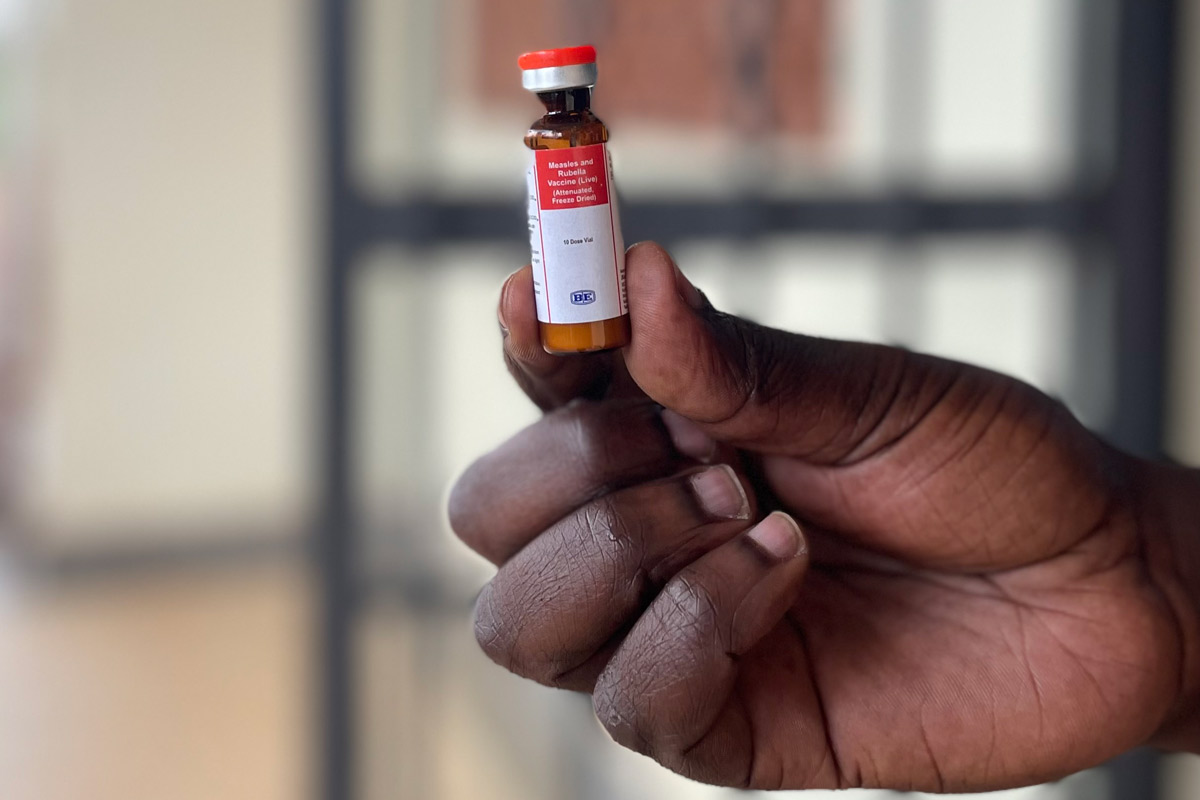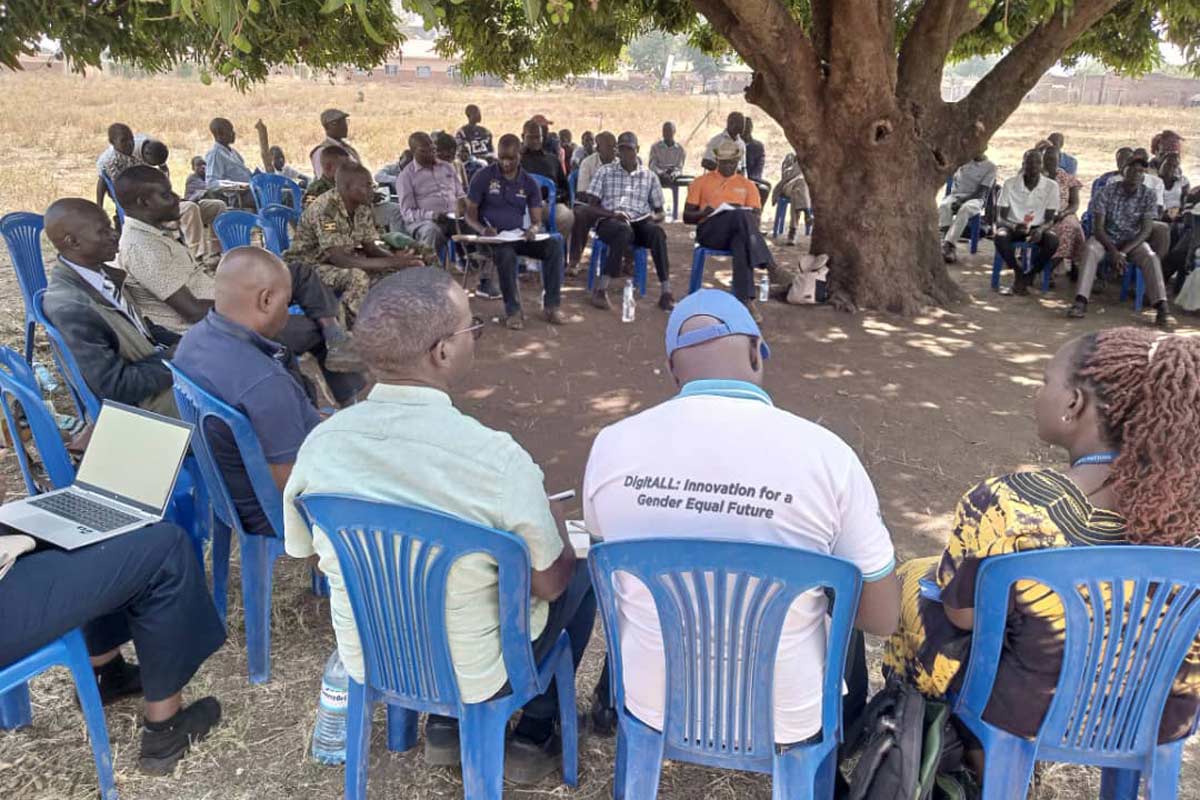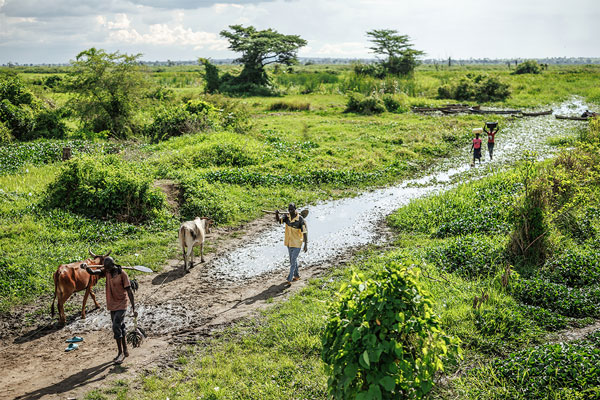She watched cancer kill her mother. Now Flavia Kyomukama is on a mission to save lives
As a young woman, Flavia Kyomukama watched AIDS and cancer tear through her family. That early tragedy has given the campaigner a burning sense of purpose.
- 29 August 2023
- 6 min read
- by John Agaba
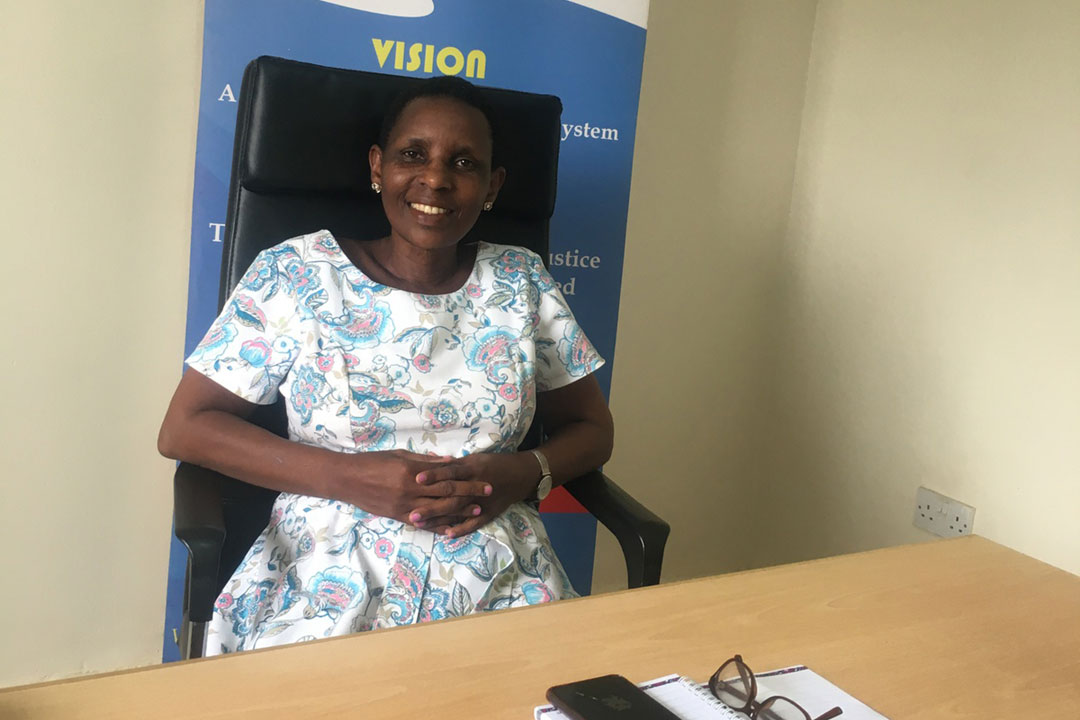
When Flavia Kyomukama was growing up in southwestern Uganda in the 1980s, her family was torn apart by two killer diseases. The young woman watched as AIDS emaciated her husband. She looked on as ovarian cancer killed her mother.
Then, she too, tested positive for HIV – the virus that causes AIDS – and soon, medics diagnosed her with cervical cancer. Today, the 56-year-old survivor is on a mission to stop the illnesses that blighted her youth.
“We need to encourage women to always screen for cervical cancer and to involve men in these discussions, because they are the people who spread HPV.”
– Flavia Kyomukama
Kyomukama has travelled all over Uganda campaigning for measures that will curb deaths from AIDS and cancer, including improved access to antiretrovirals to fight HIV/AIDS, and better uptake of the human papillomavirus (HPV) vaccine, which is capable of preventing almost all cases of cervical cancer.
She has also spoken to radio stations, at conferences and other community engagements, encouraging women to get screened for cervical cancer – especially when they experience symptoms like spotting, painful sex and/or anal and genital warts.
"Kyomukama has influenced hundreds of young girls to take HPV jabs, and hundreds of women to screen for cervical cancer," says Ruth Nazziwa, a health reporter in Kampala. "It's just that you cannot really put a specific number… But she's changed many people's attitudes in the fight against cancer."
"Kyomukama is particularly passionate about girls and young women," says Shanurah Zimbo, an 18-year-old who says Kyomukama inspired her to get screened for cervical cancer. "She wants every girl to be vaccinated against the virus."
"What I want is a country where we have zero AIDS-related deaths, zero new cases of cervical cancer, and where those who already have it receive treatment," says Kyomukama in an interview.
"These targets are achievable," she says. "We have ARVs [to treat HIV]. We have vaccines to prevent HPV. And cervical cancer can be treated if detected early."
"So all of us, individual Ugandans, health workers, government and its partners, have a role to stop these diseases."
Uganda's HPV vaccine coverage rates stand at 68% for the final dose – relatively high in the region, but not yet high enough.
Close to 7,000 women are diagnosed with cervical cancer in the east African country every year. Some 4,607 die from the disease.
Figures also show that cervical cancer is opportunistic, disproportionately affecting women living with HIV (or those with suppressed immunity). Rates of the cancer have been shown to be at least four times higher among HIV-positive women than among their HIV-negative counterparts.
Kyomukama is determined to reverse these alarming trends.
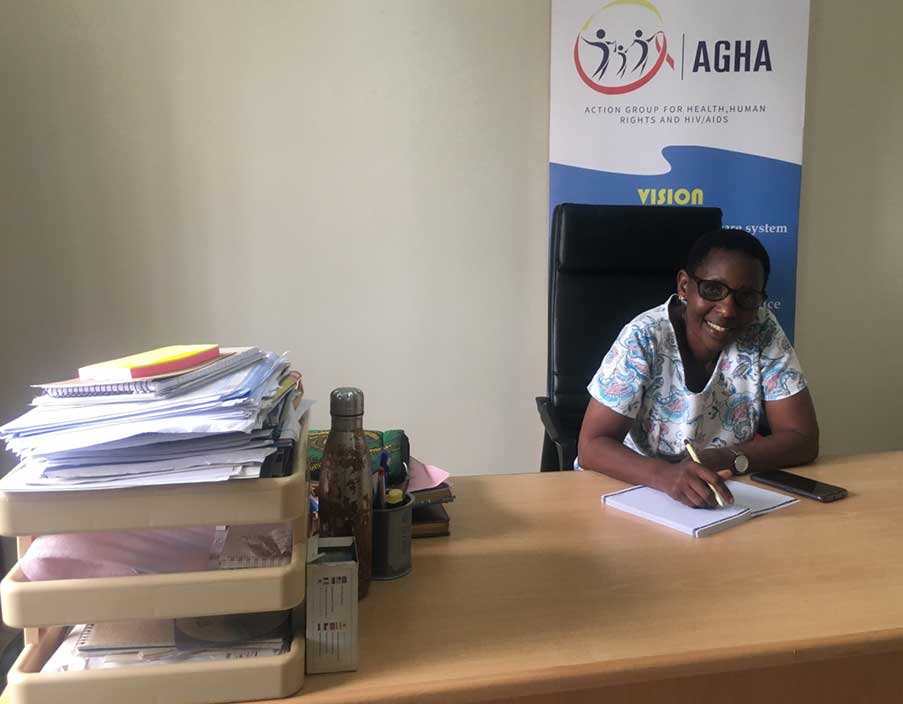
Credit: John Agaba
When I met her for this interview at her office in Wakiso district in central Uganda, she was going through reports for the menstrual and sexual reproductive health campaign she's organising on 30 and 31 August. But she put that aside to talk to me about HPV and cervical cancer.
The sexual reproductive health campaign she's organising seeks to teach adolescent girls in Wakiso and Kampala how to make reusable sanitary pads.
But Kyomukama will also use the opportunity to encourage girls who have not yet been vaccinated against HPV to get jabbed. Health workers will also vaccinate the girls against hepatitis B and COVID-19 during the campaign.
"This is the same age group: adolescents. You are looking at girls between nine and 14 years," says Kyomukama. "So we shall kill many birds with one stone."
Have you read?
Born in Kabale district, Kyomukama trained as a teacher. But everything changed after she contracted HIV in 1989. She was laid off at work, and later developed cervical cancer.
"I joined health activism," recalls Kyomukama. "I had watched my mother die of cancer. I had contracted HIV, tuberculosis and cervical cancer… It was time I fought back."
Kyomukama shares her own story of survival everywhere she goes, to sensitise masses to the diseases that have punctuated her biography.
The mother of three also shares how she had medics remove her reproductive organs, including uterus, ovaries and fallopian tubes, because she didn't want to take chances after her mother died of ovarian cancer.
"The challenge is that we still have a stigma associated with HPV and cervical cancer, which is discouraging girls from taking these jabs," says Kyomukama. "Because HPV is transmitted from men to women through sexual intercourse, many people associate the virus and cervical cancer with girls and women who are promiscuous... which is not exactly true.
"Then you have misinformation that vaccines aren't safe and are a ploy by the white man to control the population," she says, "that they will cause women to become barren. That's affecting uptake of HPV vaccines," she says.
"We have to continue sensitising masses, talking to girls and women, [explaining] that having HPV doesn't mean one is promiscuous," says Kyomukama. "We have to continue talking about the benefits of these vaccines and showing that they are safe."
More can be done, she says. "The Ministry [of Health] can mobilise like it does for other vaccines such as DPT, polio and measles, and talk about the benefits of HPV vaccines and how they are safe," says Kyomukama. "It should mobilise communities so they know where to find these vaccines."
"We need to encourage women to always screen for cervical cancer and to involve men in these discussions, because they are the people who spread HPV," she says.
Uganda introduced the HPV vaccine into its routine immunisation schedule in 2015. "The Ministry of Health in Uganda, with partners, has made significant efforts in recent years to improve the coverage of the HPV vaccine for girls age nine to 14," explained Emily Kobayashi, who heads Gavi's HPV programme. "These concerted efforts, and partnerships with community leaders and advocates, are moving us towards the ultimate goal – elimination of cervical cancer."
"We can conduct HPV vaccinations alongside other vaccination campaigns such as for polio or measles," says Kyomukama, "so that when health workers are in communities vaccinating babies against polio and measles, the same health workers vaccinate girls against HPV."
Dr Michael Baganizi, Deputy Manager for Uganda's Expanded Programme on Immunisation (EPI), says the country gives HPV vaccinations routinely at ten years, although the WHO recommends the vaccine for girls aged between nine and 14 years.
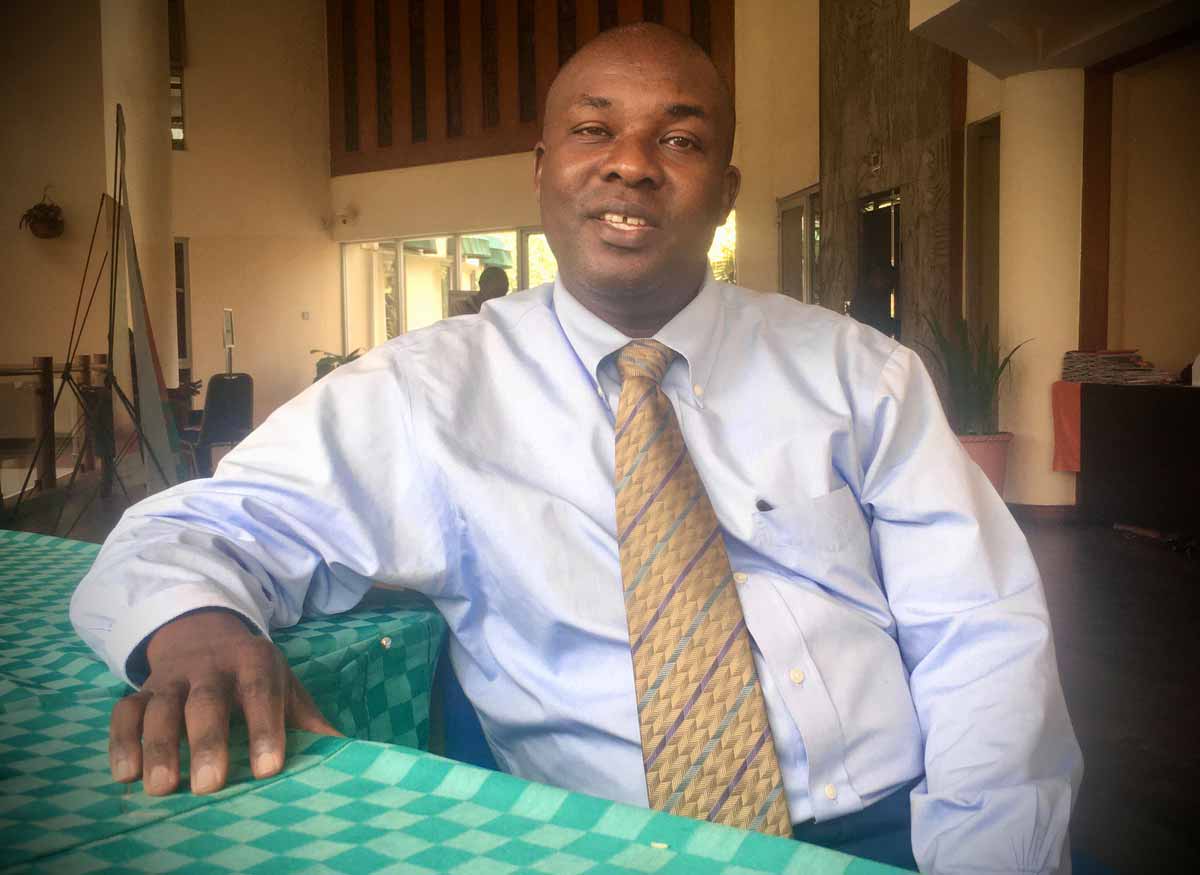
Credit: John Agaba
"We give the vaccines to girls between nine and 14 years old when we are running an active HPV vaccination campaign," says Baganizi. "The idea is to inoculate the girls before they engage in sexual intercourse and are exposed to the virus.
"We partner with schools to reach as many girls as possible because most of these girls are in school," he says.
Baganizi says they vaccinate girls who have missed out during integrated child health days, usually in the months of April and October. "We want to integrate immunisation services like we do for most routine vaccinations. This would save us resources," he says. "But at times we don't have these commodities readily available."

